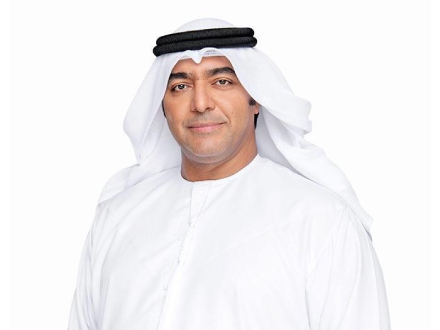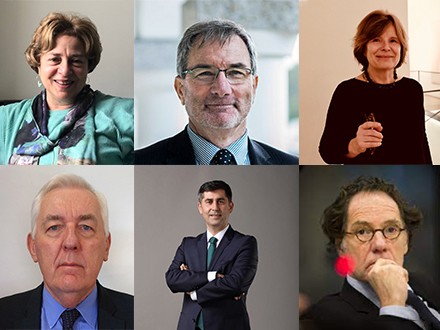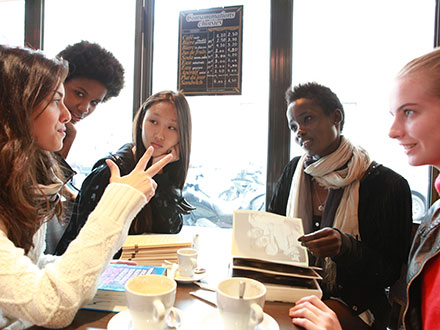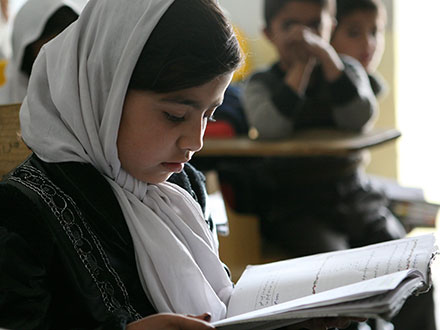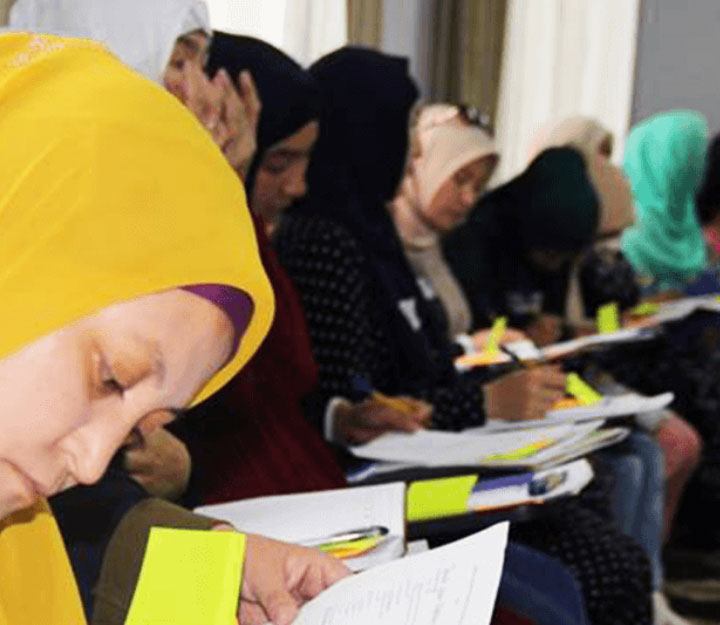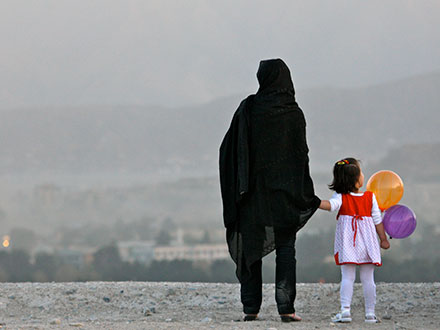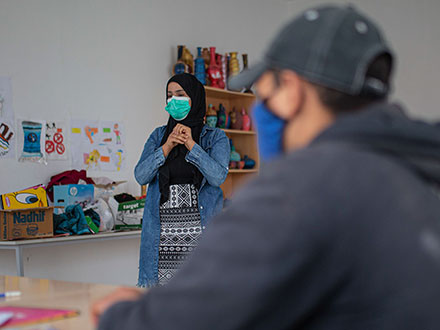Life of Children Under Daesh: New Report Urges Rehabilitation and Reintegration
Daesh systematically indoctrinated children to believe their identity was under attack by ‘the other.’ Children were cut off from formal education systems and exposed to Daesh’s perilous interpretation of education, which promoted violence and division.
According to a new report by Hedayah, the International Centre of Excellence for Countering Violent Extremism, and the George Washington University Program on Extremism, children exposed to mental and physical trauma under Daesh now require specialized rehabilitation and reintegration.
The report urges support for children in Iraqi and Syrian displacement camps and repatriated children affected by Daesh. To reverse the indoctrination process, urgent support should include reintegration into education systems that provide specialist assistance to children on positive self-identification and social cohering. This is necessary for the protection of children, which is a human right, and to end a dangerous cycle of violent extremism.
The report builds on the analysis of documents from the “ISIS files” – the largest collection of original files from Daesh held by any non-governmental entity. It expands on previous research by Hedayah, which uncovered the deliberate promotion of extremist values and ideologies to children through systematized education.
“The ISIS files prove that freeing children from the scourge of terrorism is not only a question of fighting terror but also, and foremost, a question of protecting their human rights,” said the Deputy Minister for Foreign Affairs of Spain, Cristina Gallach.
“Daesh puts its indoctrination into practice by constructing a narrative that describes Daesh as the heroes and everyone else as the enemy. The latter part of this strategy moves further by constantly exposing children to violence until the notion of death and destruction becomes a normal and encouraged phenomenon for these children. This is only a glimpse of life under Daesh rule, and these recommendations reinforce the need to dismantle Daesh’s indoctrination,” reaffirms Hedayah’s Executive Director H.E. Ahmed AlQasimi.
Children are still being held in displacement camps in Syria and Iraq, and the question of how to handle the cases of Daesh-affiliated children has been under scrutiny.
Sara Zeiger, the lead author of the report, suggests, “Communities are fearful of individuals that have previously been affiliated with Daesh, even children, because they believe that rehabilitation and reintegration efforts might be futile at reversing the radicalization process. Governments should clearly explain the processes for rehabilitation and reintegration of Daesh-affiliated children and provide opportunities for the community to contribute to the formation of policies. Only then can we start the path to unification and peace and ensure the protection of all children.”
“Many affected children have the EU citizenship and are currently without supervision, care or education. In addition to the humanitarian aspect, it is a special responsibility and in the interest of the European countries to help those children on their way back,” adds HE Herbert Scheibner, President of the European Institute for Counterterrorism and Conflict Prevention.
The report helps those fighting terrorism to understand the ideology of Daesh in order to combat it. Director of the GW Program on Extremism, Dr. Lorenzo Vidino, says, “The ISIS Files provide a rare and precious glimpse into the inner workings of the organization. Understanding how that happened through primary sources allows us to craft better strategies to remedy what the group has done and prevent it or other terrorist groups from doing it again.”
Hedayah Chairman H.E. Dr. Ali Al Nuaimi affirmed that “this report is a breakthrough for future researchers to providing key insights on countering Daesh ideology.”
The report provides concrete approaches for governments, the education sector and others to reintegrate and rehabilitate children formerly under Daesh rule.
The report was conducted in partnership with the European Institute for Counterterrorism and Conflict Prevention (EICTP) and funded by the Government of Spain.
For more information, contact: media@hedayah.ae
Access the Full Report
“Rehabilitating Children of ISIS: Extracting Recommendations from the Education-Related ISIS Files” is available online: https://www.hedayahcenter.org/isis-files-recommendations/
It builds on research summarized in the report Planting The Seeds Of The Poisonous Tree: Establishing A System Of Meaning Through ISIS Education, which is available online: www.hedayahcenter.org/resources/reports_and_publications/isisfiles_education/
About Hedayah
Hedayah is the International Centre of Excellence for Countering Violent Extremism. The organization works towards building a world without violent extremism through evidence-based and innovative programs, strategic communications and world-class research.
Hedayah was created in response to a growing desire from the international community and members of the Global Counter-Terrorism Forum (GCTF), representing 29 countries and the European Union, to establish an independent, multilateral ‘think and do’ tank devoted to countering violent extremism. The organization is dedicated to technical excellence and delivers groundbreaking research, innovative methodologies and programs across 48 countries. It delivers real and sustainable impact to governments, civil society and people impacted by extremism by prioritizing local ownership.
About the ISIS Files Project
The New York Times collected thousands of files that were abandoned by ISIS in 11 cities as their strongholds were overtaken by the military campaign, with permission from local military units. The documents, now called “The ISIS Files,” constitute the largest collection of original files from Daesh that is held by any non-governmental entity. In order to extract knowledge on the indoctrination process that Daesh has used with respect to children, Hedayah and GWUPOE undertook a research partnership to evaluate documents of the terrorist group. The original research report “Planting the Seeds of the Poisonous Tree: Establishing a System of Meaning through ISIS Education,” analyzed almost 70 primary-source documents by Daesh in relation to children’s education.

